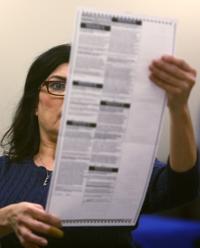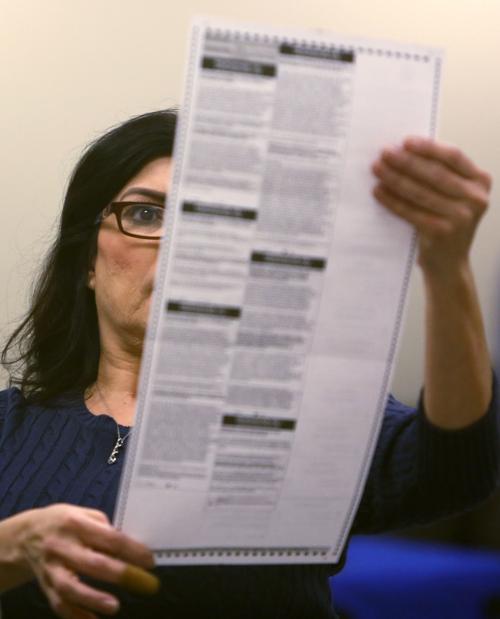Nearly 7 out of 10 Southern Arizona voters polled said they were satisfied with the outcome of midterm elections, a flash poll by the Arizona Daily Star and Strongpoint Opinion Research found.
One in four surveyed earlier this week said they were dissatisfied with the results of the midterm.
A survey of 1,175 local residents found that those who voted in record-high numbers listed concerns about health care and participation in the political process as their top concerns while voting.
Concerns about immigration polled lower at 15 percent while jobs was a top concern for about 10 percent of those surveyed. Recent social movements like #MeToo, #BlackLivesMatter and #NoWall came in sixth in the survey, with 9 percent saying it was their top reason for voting on Nov. 6.
The near constant onslaught of attack ads played a role in the election as well, according to those that participated in the poll.
An analysis by Advertising Analytics of FCC data found that an estimated $129 million was spent on televised political ads in Arizona this year.
Asked if attack ads leading up to the Arizona midterms influenced various races, the Senate race was the largest outlier — with 22 percent saying those ads influenced the victory of Rep. Kyrsten Sinema over Rep. Martha McSally “a great deal.”
Overall, 85 percent said the political ads factored into the decision in the Senate race.
In the local Congressional District 2 race between Ann Kirkpatrick and Lea Marquez Peterson, 78 percent said attack ads had an influence on Kirkpatrick’s win, but only 9 percent said the ads mattered a great deal.
In the race for governor between incumbent Doug Ducey and challenger David Garcia, as well as for the Congressional District 1 race between incumbent Tom O’Halleran and Wendy Rogers, more than 30 percent of those surveyed felt attack ads did not influence the incumbents’ wins.
In Congressional District 3 where incumbent Democrat Raul Grijalva easily won a ninth term last week, nearly half of those polled said attack ads had no influence on the outcome of the race, which had virtually no formal political advertising.
Survey respondents had mixed feelings about the impact on the election of deploying of federal troops to the Arizona border in response to the migrant caravan.
About 18 percent said the deployment influenced midterm election results either “a great deal” or “a lot” while 17 percent said that it didn’t matter at all.
Sixty-five percent said it played some role in affecting the midterm results.
Dan Lauletta, who participated in the poll, conceded that he was tempted not to vote this year.
“I’m supremely fed up with the election process. There is so much negativity and lies thrown around, and you don’t know what’s true. It is a big turnoff,” the 70-year-old city resident told the Star.
While the poll focused on federal and statewide races, Lauletta said he is concerned about local issues, specifically road conditions.
“The streets are a disgrace,” he said, counting eight separate potholes on the street that is the entryway to his neighborhood. “They have been there for over two months.”
He added that he felt the city’s transportation department is negligent and have mismanaged their budget, refusing to vote for any proposition that would give them more money.
Tucson resident Donald Ijams said that his single concern was with the growing wealth gap in our society and Arizona, not political ads.
He had high hopes for Garcia, a Democrat, but felt his single-issue focus on education while running for governor didn’t resonate with voters.





